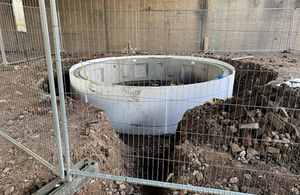Innovation Fellowship Launches
News story
The jHub are seeking high-quality military talent to help lead the transformation of Defence.

The Fellowship
The jHub is Defence’s foremost innovation hub. We want to harness the game-changing potential of emerging technology to enhance and improve the operational effectiveness of the UK armed forces. We’re seeking to independently recruit the best military talent to serve as an innovation broker on behalf of Defence and accelerate the next generation of cutting-edge military capabilities.
Who are we looking for?
We want a richly diverse group of military officers united by a passion for innovation and the application of cutting-edge technology to deliver positive impact at pace.
What can we offer?
Located in central London, the jHub has excellent links to the nation’s start-up and innovation ecosystem.
If successful, you’ll enjoy unparalleled opportunities to deliver the type of high impact projects that are only possible in Defence. You’ll be matched with a user community that is looking for your unique skill set; have access to senior decision makers; and help tackle the critical challenges facing Defence.
You’ll have the opportunity to collaborate with a peer group of exceptionally talented innovation scouts and build strong links across government and the private sector.
We’re offering each Fellow a 24-month assignment with a possibility of extending it up to 36 months; a dedicated recruitment and onboarding process; and bespoke professional development.
Fellows will work in small teams on projects that are technologically challenging, highly impactful and deliverable within a year. Take a look at the projects we are currently involved with for an idea of the scale of the challenges you could be working on.
Register your interest now
If you are currently serving in the Armed Forces you can register your interest for the UKStratCom Innovation Fellowship via internal channels.
For external candidates vacancies with the jHub can be found on Civil Service Jobs.
Published 8 August 2022



